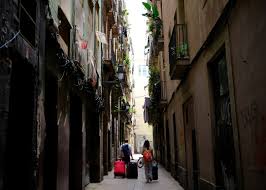Spain Implements Crackdown on Airbnb Holiday Rentals

Introduction
As the popularity of short-term rentals has surged, cities across Europe, including Spain, are facing the challenges posed by platforms like Airbnb. The increasing number of holiday rentals has sparked concerns regarding housing affordability, urban congestion, and community livelihoods. Consequently, Spain has initiated a crackdown on Airbnb and similar platforms to restore balance and protect local interests.
Details of the Crackdown
Spain’s government, alongside various regional authorities, has recently tightened regulations surrounding short-term holiday rentals. In cities such as Barcelona and Madrid, stringent rules have been established to limit the number of properties that can be legally rented out to tourists. For instance, in Barcelona, only properties that have been granted a license can operate as vacation rentals. Since 2022, relevant authorities have doubled down on inspections to ensure compliance, with hefty fines for unlicensed rentals. In addition, many municipalities are placing caps on the number of days a property can be rented out per year.
Furthermore, the crackdown has spurred a broader debate about the impact of tourism on urban life, particularly in areas with housing shortages where locals cannot afford to compete with rental income prices. According to a recent report by the Spanish Ministry of Transport, Mobility and Urban Agenda, the average rent in major cities has increased by 25% over the past five years, largely attributed to the rise of platforms like Airbnb.
Impact on Property Owners and Tourists
For property owners, the regulations present a dual challenge. While compliance may limit their short-term rental income, it could also increase the value of their properties in the long run by stabilising local housing markets. Some owners are embracing the change, gearing their properties towards long-term rentals to cater to local residents instead.
From a tourist perspective, these developments are generating mixed reactions. While some argue that the reduced number of short-term rentals could lead to a decline in unique accommodation options, others believe that this could enhance the quality of their experience by reducing overcrowding and preserving local culture.
Conclusion
The Spanish government’s crackdown on Airbnb holiday rentals represents a significant shift in how cities manage the influence of short-term accommodation on local communities. As countries around the world grapple with similar issues related to tourism and housing availability, Spain seems poised to lead the charge towards more sustainable practices. The ongoing challenge lies in balancing the interests of tourists, locals, and property owners, with many observing Spain’s evolving landscape as a potential model for addressing the complexities of the modern rental market.









